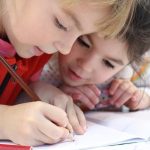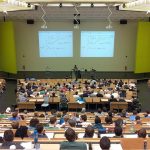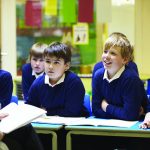In 2016, UNESCO launched the Global Alliance to Monitor Learning (GAML). Questions about what and how children and young people learn are at the forefront of the global education agenda, given that Sustainable Development Goal 4 calls for the creation of conditions for inclusive, quality and equitable education for all by 2030. GAML works to support global efforts of countries to effectively measure educational outcomes and use this information to achieve SDG 4. This initiative will help build strong links between researchers, policymakers, donors and civil society. Such connections are urgently needed to collect valid and comparable information that helps to improve education, especially in the face of overcoming the consequences of the COVID-19 pandemic, which has affected absolutely all educational systems in the world. GAML has over 250 members representing a wide range of stakeholders from academia, international organizations, non-profit organizations, civil society and the private sector. By the initiative of CICED, since 2017, Russian experts have been participating in Working Group 4.1, which deals with the indicator of the 4th goal of sustainable development “the number of children and young people who have mastered the minimum level of reading and counting” and the Working group of indicator 4.2″ the number of children under five years of age who have reached an adequate level of development.” In October 2021 CICED participated in annual meeting, that was focused on providing an update on the progress and the methodological issues of SDG 4 Global Indicator 4.1.1 on learning proficiency; present the activities taken and the outcomes in the framework of Learning Losses with the Measuring Impact of Learning Outcomes (MILO); household surveys to measure learning. The CICED center plans to continue to cooperate with the Alliance and participate in the global work towards achieving SDG Goal 4.
Meeting of the UNESCO Global Alliance to Monitor Learning (GAML)
Previous Post
Annual conference of the Eurasian Association for Educational Assessment 2021
Next Post
Meeting of the Building Evidence for Education working group
News
- Happy New Year! 25.12.2023
- Quasi-adaptive version of SAM tests 21.12.2023
- Using SAM to Measure Computer Literacy 19.12.2023
- Working meeting of representatives of CICED with representatives of the National Center for Assessment of the Quality of Education (NCQA) under the President of the Republic of Tajikistan” 15.12.2023
- Working meeting of representatives of CICED with representatives of the National Institute of Education of the Ministry of Education and Science of the Republic of Belarus 12.12.2023
- Working meeting of representatives of the Center for International Cooperation for the Development of Education with the Deputy Minister of Education and Science of the Kyrgyz Republic and representatives of the National Center for Assessment of the Quality of Education and Information Technologies under the Ministry of Education and Science of the Kyrgyz Republic (NTSOKOIT) 07.12.2023
- Working meeting of representatives of the Center for International Cooperation for the Development of Education with representatives of the Center for Assessment and Testing (ACT RA) under the Ministry of Education, Science, Culture and Sports of the Republic of Armenia 05.12.2023
- International cooperation of CICED in 2023 27.11.2023
- Progress on girls’ access to education: What the new UNESCO data reveals 23.10.2023
- 44 million new teachers must be recruited by 2030 to achieve our education goals 29.09.2023






